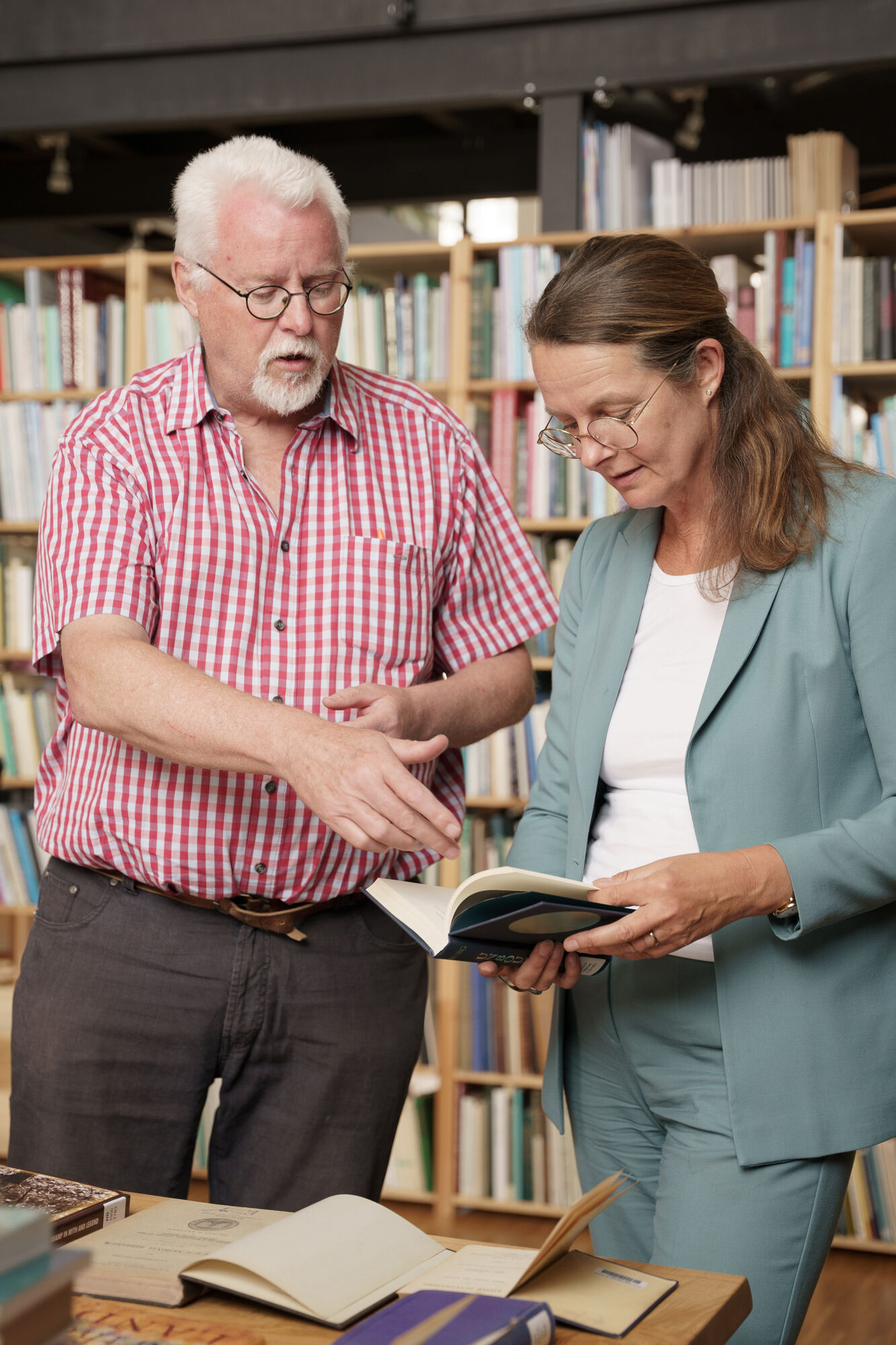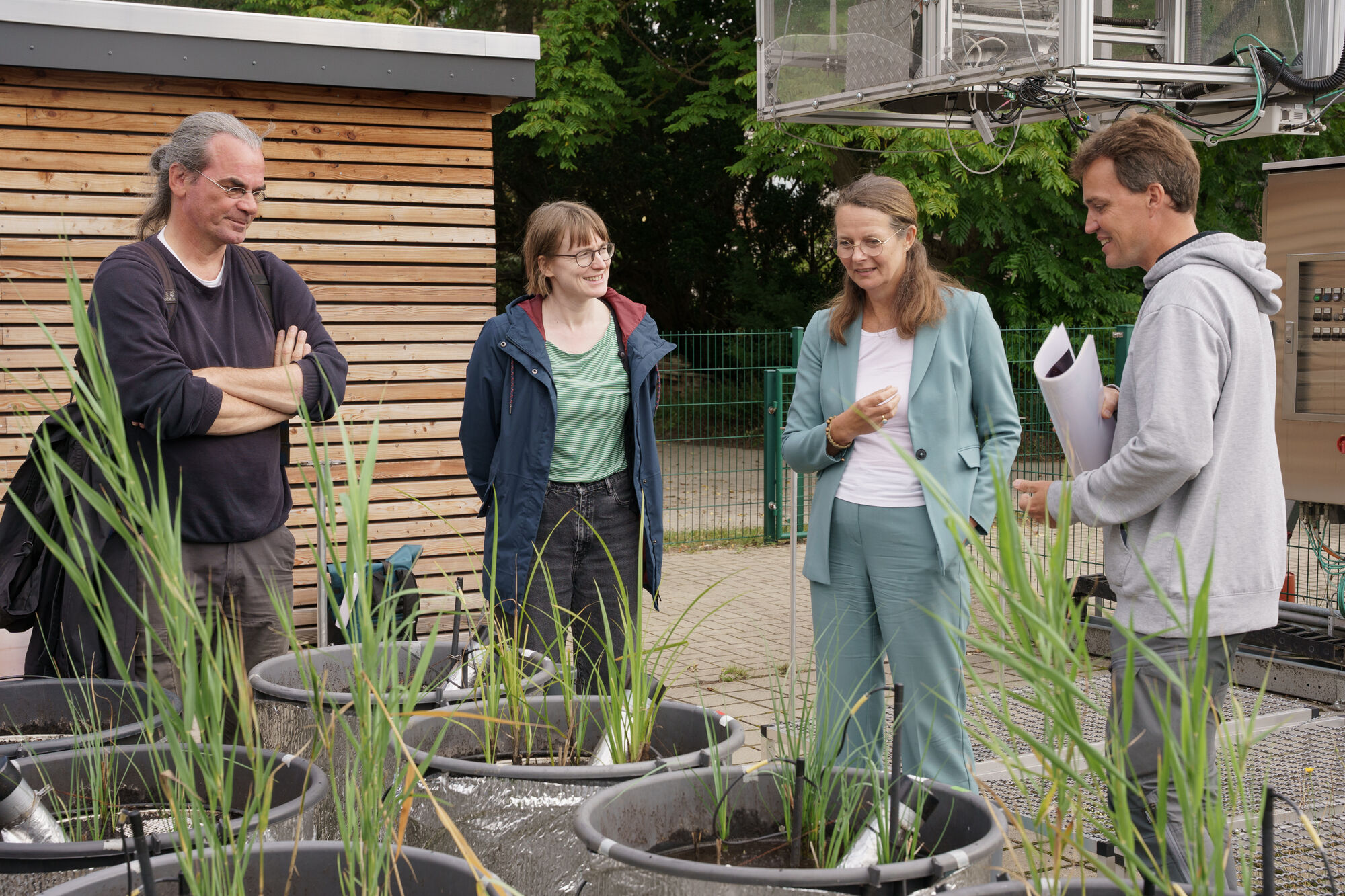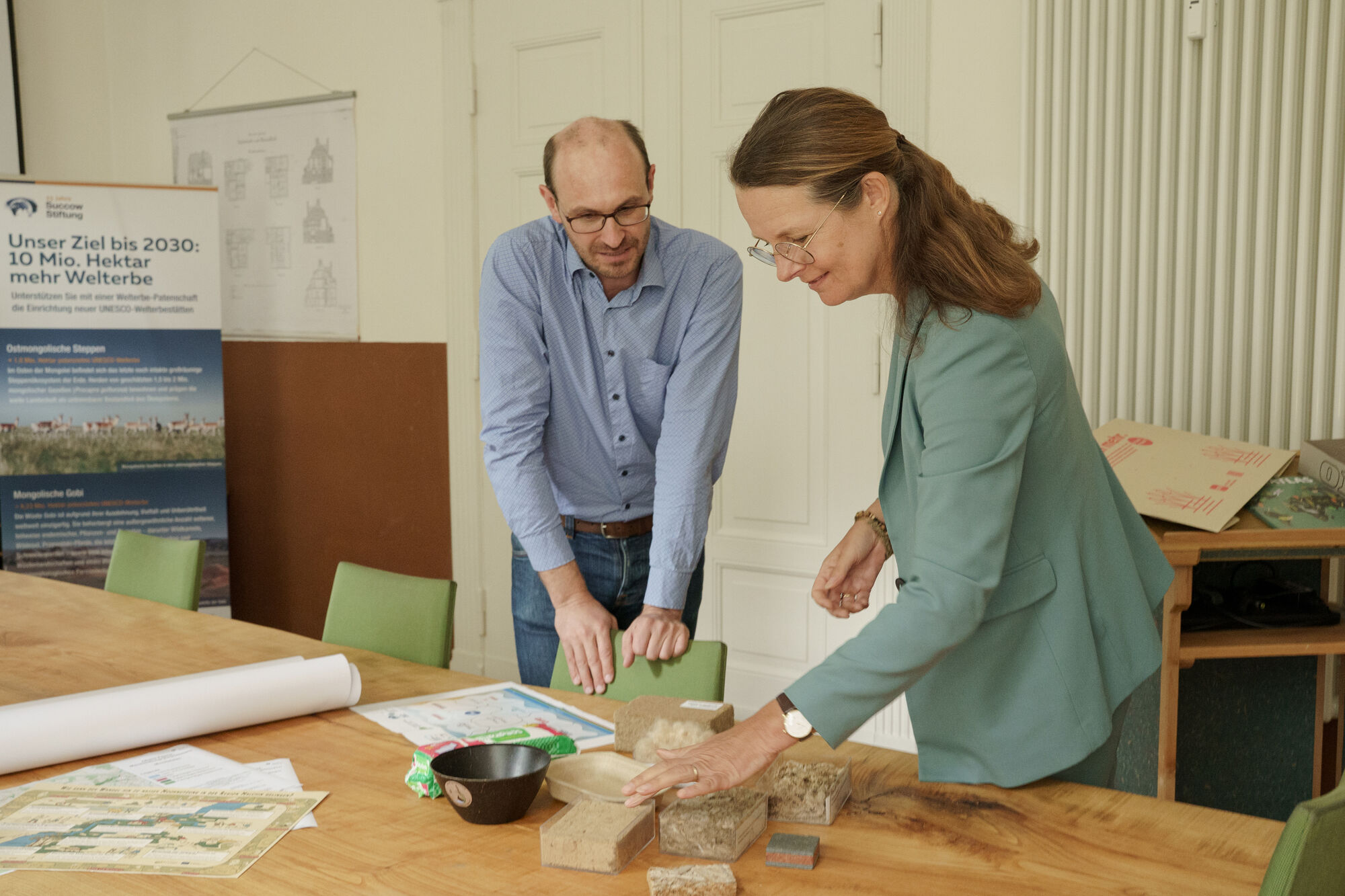"I am deeply impressed by the work performed by the Greifswald Mire Centre. The fact that the University of Greifswald has been granted the new CRC WETSCAPES2.0 bears witness to the cutting-edge research being conducted here. The scientific expertise amassing here is an absolute unique selling point, not only in Germany but also internationally," said Science Minister Bettina Martin.
During a guided tour, researchers from the CRC/Transregio "WETSCAPES2.0: Novel Ecosystems in Rewetted Fen Landscapes" showed Minister Martin 108 artificial mini-mires in an experimental setup. The CRC will focus on the functions and the ecological, biogeochemical and hydrological processes of rewetted fen landscapes. “If we want to influence the climate balance in Mecklenburg-Vorpommern, we need to take a look at the peatlands. They are responsible for the largest proportion of greenhouse gas emissions,” explained Prof. Dr. Jürgen Kreyling, Spokesman of the CRC.
Minister Martin also gained an impression of the work performed by the Greifswald Mire Centre (GMC). GMC sees itself at the intersection between science, politics and practice in issues concerning peatlands, on both a local and global scale. With approximately 150 peatland experts in Greifswald, many of whom are involved in the CRC, this strategic collaboration between the University of Greifswald, the Succow Foundation, and the Institute for the Sustainable Development of the Earth’s Natural Environments (DUENE e.V.) bundles various areas of expertise linked to peatlands. This includes the world’s largest “Global Peatland Database” on the distribution and condition of the peatlands, as well as the realisation of projects in the area of paludiculture.
At the Succow Foundation, Minister Martin was able to see for herself how biomass from paludicultures can be used to make climate-friendly products that can be produced industrially. Packaging and transport boxes made from reed canary grass - a sustainable material produced by paludiculture - were one of the products on show. These were created in a voluntary demand alliance comprising large companies aiming to contribute towards peatland and climate protection.
Greifswald’s Peatland Library was also presented to Minister Martin. The special collection on peatlands has recently moved to the University of Greifswald’s former lecture hall in the “Old Chemistry Building”. The hall which features on the built heritage conservation list is now home to 50,000 books from various genres and published in various languages. Prof. Dr. Hans Joosten presented Minister Bettina Martin with books from the collection that are related to the Minister’s life, e.g. her studies in a region of the USA not far from central peatland areas. “You have researched my background well,” enthused Science Minister Bettina Martin.
At the end of her visit, Bettina Martin said: “It is our joint aim to provide a long-term foundation for the Greifswald Mire Centre. We have made a step towards achieving this goal by managing to firmly anchor peatland research in the Federal Government’s coalition contract. Based on this achievement, the State Government is now holding talks with the Federal Government on the establishment of an external research institute in Greifswald. There is still a long way to go, but I feel very optimistic that we will be successful with the further development of this unique Mire Centre. Further research into and the preservation of the peatlands will prove important factors in combatting climate change.”
Further information
linkedin.com/in/greifswaldmoor
instagram.com/greifswaldmoor
bsky.app/profile/greifswaldmoor.bsky.social
Contact at the University of Greifswald
Dr. Elisabeth Böker
Press Officer & Head of University Communications
Domstraße 11, 17489 Greifswald
Tel: +49 3834 420 1150
pressestelleuni-greifswaldde



